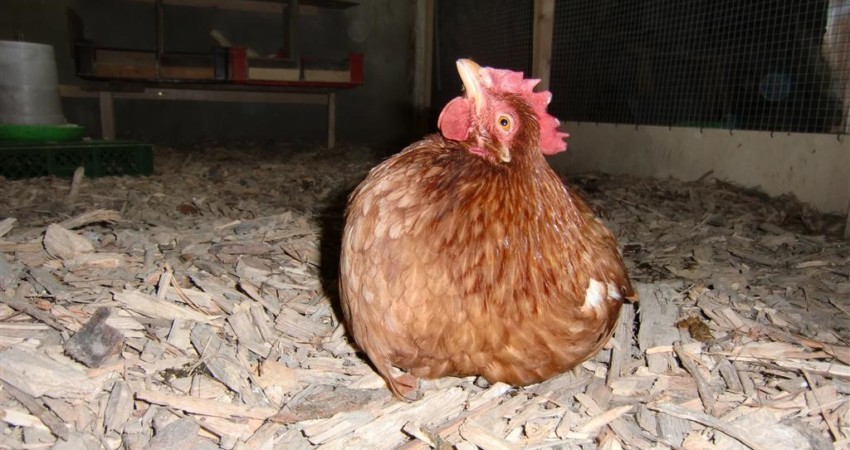

Stargazing is a term that refers to a condition where a chick is unable to hold its head upright. Instead, the head of the chick flops backward and rests upon its back, giving the impression that the chick is looking at the sky, or stargazing. This condition is the result of a progressive paralysis that starts in the feet and works its way up through the legs and wings to finally affect the neck. If you have a chick with this condition, leg function will be impeded and the bird may even begin to walk backward.
Some birds are born with stargazing issues while others may develop it later. If caught in a timely manner, it can often be corrected. The general consensus on why it occurs is due to a deficiency of Vitamin B1, which is also known as Thiamine. A lack of Thiamine is associated with the stargazing appearance as well as stiff, awkward appendages, muscle atrophy, and limb paralysis. If the deficiency is corrected by administering Thiamine, these problems usually rectify themselves. Some birds will require more than just a temporary dose, however, and may also need ongoing, supportive treatment with Thiamine in reduced amounts.
How you administer Thiamine is the key to its effectiveness. It can be given orally or it can also be added to water. When adding it to water, you have to be certain that your chick knows where the water is and how to access it, so be sure to monitor affected chicks to make sure they get what they need. While it may be tempting to add Thiamine to food, that is something to consider down the road but not in the initial phases of stargazing. Thiamine deficiencies result in severe anorexia, so your chick will be unwilling to eat until the problem is rectified and Thiamine is again plentiful in his or her body. Once you achieve this, adding Thiamine to food as an ongoing treatment is acceptable. Until then, force-feeding or treatments to stimulate appetites may be necessary to pull chicks through.
Good sources of Thiamine and Vitamin B are Nutri-Drench and Brewer’s Yeast. Nutri-Drench comes in a liquid that can be administered with a dropper. This is a worthwhile avenue to pursue during the initial stages and when anorexia is present. Once your chick begins to show interest in food again, Brewer’s Yeast (a source of B-complex vitamins) can be sprinkled on food to continue the healing process. When you decide to start hatching your own eggs, hen care is of the utmost importance. Prevention of issues in young chicks starts at the source: their mother. If the hen is in good condition, chances are that her chicks will be as well. To be on the safe side, provide your hen with a multi-vitamin beginning before she lays her eggs so the benefits will be passed on to her young to ensure them the best start possible to a healthy, productive life.
Treatment is necessary for chicks to survive this ailment, so being able to recognize the signs and taking quick action is essential. If you see a chick with their beak pointing to the sky, remember that his or her life is in jeopardy and immediate care is necessary. Should you need assistance with diagnosis or dosage information, having the phone number of a good avian vet on hand and placing a phone call will get you, and your chicks, the help that is needed.
 Contact Jaguza Support
Contact Jaguza Support